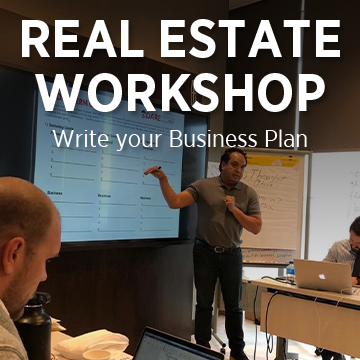In our business, you want to be a sales consultant, not a salesperson.
What’s the difference between a salesperson and a sales consultant? There are three main differences:
1. A salesperson doesn’t have a fiduciary duty—a sales consultant does. A salesperson just wants to push the sale and perhaps even manipulate it (I’ve heard of this referred to as ‘commission breath’), and a consumer can feel that right off the bat. A sales consultant is more focused on their client’s experience and needs. They ask great questions. They listen. Once they get to answer the client’s questions, they educate them on their options. When they educate them on their options, they get a better idea of the best decision for them and their family, whether that be now or later.
2. A sales consultant focuses on their skills. This benefits the consumer because it means they can negotiate offers better for both buyers and sellers. They can also negotiate better during the repair phase, which is one of the hardest (and most disliked) parts of the transaction. Of course, skills come from experience. Here at the DARE Network Group, we’ve handled almost 2,000 sales. We haven’t seen everything, but we’ve seen a lot, and that helps the consumer in our fiduciary duty toward them.
“A sales consultant is more focused on their client’s experience and needs.”
3. Sales consultants foresee a lot of pitfalls. Pitfalls always happen—nothing ever goes 100% smoothly—but we do our best to foresee 90% of what might go wrong. Instead of being reactive to what potentially can go wrong, we take a proactive approach to making sure a problem doesn’t arise in the first place.
For example, many of our buyer clients are excited to move into their new homes, but we always recommend not moving in the same day as the closing. If you’re a salesperson who only cares about the commission check, what do you care when clients move into their homes? As sales consultants, though, we want to serve them (and hopefully their friends and family) time and time again, so we advise waiting a couple of days in case the utilities haven’t been turned on, there’s a delay in closing, etc. This suggestion makes all the difference.
If you’re looking to transition from a salesperson to a sales consultant, reach to me or my team’s director of sales and we’d be happy to book a no-obligation consultation. Even better, come to one of our events listed under the ‘Events’ tab on our website. We offer three-hour business planning courses specializing in customer service and how to focus on the fiduciary responsibility we have to our clients.





